
13 Oct Best Books on Business and Economics (The Economist List)
Whether you’re an entrepreneur trying to scale your company, an economist interested in fiscal theory, or an investor curious about financial markets, staying informed with the latest thinking is crucial. The Economist recently highlighted a collection of standout business and economics books that explore topics ranging from mega-project failures to management techniques, gold con artists, and new economic theories. Here, we categorize these books based on the key lessons and takeaways they offer.
Here is the list of the best books by the economist:
1- Anansi’s Gold by Yepoka Yeebo
2- Best Things First by Bjorn Lomborg
3- The Fiscal Theory of the Price Level by John Cochrane
4- The Geek Way by Andrew McAfee
5- How Big Things Get Done by Bent Flyvbjerg and Dan Gardner
6- Material World by Ed Conway
7- The Missing Billionaires by Victor Haghani and James White
8- Scaling People by Claire Hughes Johnson
9- Unscripted by James Stewart and Rachel Abrams
1- Anansi’s Gold by Yepoka Yeebo
- Key takeaway: The power of deception and the gullibility of investors.
This riveting narrative recounts the life of John Ackah Blay-Miezah, a Ghanaian con artist who swindled investors across the globe by promising access to hidden gold reserves. Yeebo’s meticulous reporting captures not only the audacity of one of the world’s greatest financial cons but also the systemic vulnerabilities that allowed it to happen. A stark reminder of how ambition and greed can blind even the most sophisticated investors.
Amazon Links: Hardcover, Paperback, Kindle
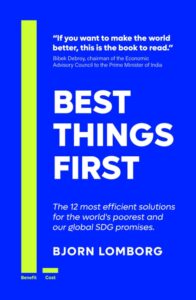 2– Best Things First by Bjorn Lomborg
2– Best Things First by Bjorn Lomborg
- Key takeaway: Focus on cost-effective policies to improve the world’s poor.
Bjorn Lomborg offers a thought-provoking critique of the United Nations’ sprawling Sustainable Development Goals (SDGs). Instead, he argues for a focused set of 12 high-impact policies that can deliver maximum results with minimal cost. Lomborg’s work is a refreshing, data-driven argument that challenges global policy makers to prioritize strategies with measurable and cost-effective outcomes.
Amazon Links: Hardcover, Paperback, Kindle
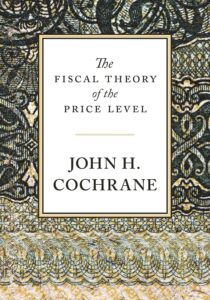 3- The Fiscal Theory of the Price Level by John Cochrane
3- The Fiscal Theory of the Price Level by John Cochrane
- Key takeaway: Government debt—not interest rates—may drive inflation.
For those with a deep interest in economics, John Cochrane’s groundbreaking work challenges traditional thinking about price levels and inflation. He posits that government debt, rather than monetary policy or interest rates, plays a crucial role in determining price stability. While this book may not be for casual readers, it’s a must-read for economists who are navigating today’s landscape of high deficits and inflationary pressure.
4- The Geek Way by Andrew McAfee 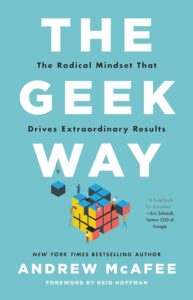
- Key takeaway: Adopt a “geek” mindset for faster innovation and reduced bureaucracy.
Andrew McAfee, a noted business and technology expert, explores how the innovative approaches of Silicon Valley—prototyping quickly, focusing on teamwork, and avoiding heavy bureaucracy—can be applied across various industries and aspects of life. McAfee’s book is a blueprint for how businesses can adopt agile thinking and problem-solving techniques to stay competitive in the modern economy.
5- How Big Things Get Done by Bent Flyvbjerg and Dan Gardner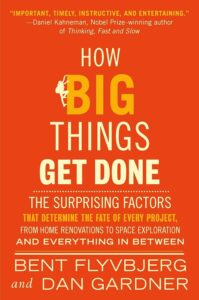
- Key takeaway: Understand why megaprojects often fail and how to fix them.
Large-scale projects—from urban infrastructure to corporate mergers—often come with massive delays and budget overruns. Flyvbjerg and Gardner provide an entertaining yet sobering look at the reasons why ambitious projects so often miss deadlines and exceed costs. With practical insights into project management, this book is a valuable resource for anyone managing complex, high-stakes initiatives.
6- Material World by Ed Conway
- Key takeaway: Control over resources like lithium and copper shapes the future.
In a world racing towards decarbonization, Ed Conway’s Material World is a timely exploration of six essential materials—copper, iron, lithium, oil, salt, and sand—that have historically shaped human development and continue to underpin the global economy. As governments and corporations vie for control over these critical resources, Conway’s deep dive into their significance helps us understand the economic and geopolitical battles ahead.
7- The Missing Billionaires by Victor Haghani and James White
- Key takeaway: The question isn’t just what to buy, but how much.
In this compelling book, Haghani and White address one of the most fundamental but often overlooked questions in finance—how much to invest. Even seasoned investors get this wrong, often leading to financial losses. Through mathematical but accessible explanations, the authors present clear guidance on making optimal investment decisions, a must-read for anyone serious about building wealth.
8- Scaling People by Claire Hughes Johnson
- Key takeaway: Effective management is the foundation of a successful company.
A former executive at Google and Stripe, Claire Hughes Johnson provides a rare, practical guide to scaling organizations by focusing on people and processes. This book covers the nuts and bolts of management, including giving feedback, delegating tasks, and running productive meetings. Johnson’s insights are invaluable for anyone looking to lead teams and build successful businesses at scale.
9- Unscripted by James Stewart and Rachel Abrams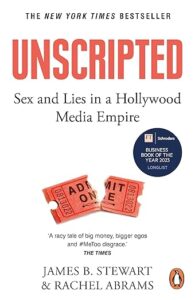
- Key takeaway: Dysfunctional leadership can bring even the mightiest corporations down.
This explosive account of Sumner Redstone’s final years offers a front-row seat to the personal and corporate battles that rocked his media empire. As the aging mogul lost his grip, the empire crumbled under the weight of scandal, power struggles, and toxic leadership. Unscripted is a vivid reminder of how internal dysfunction can rapidly unravel even the most powerful organizations.
Why Do These Books Matter?
These books not only inform but challenge conventional thinking across various fields, whether it’s about how the world should tackle poverty, how governments should manage fiscal policy, or how businesses can avoid common pitfalls in project management and leadership. Each book provides valuable takeaways, offering readers an opportunity to learn from the successes and failures of others, and to better navigate the complexities of modern business and economics.
From cautionary tales of fraud to the intricate dance of resource management and team scaling, this collection offers readers a window into the diverse challenges shaping today’s world of business and economics.



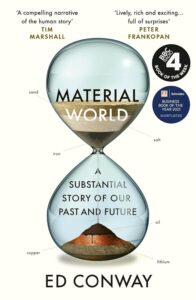
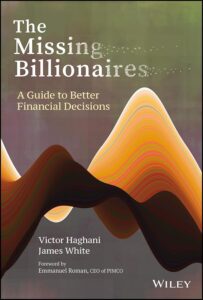

Sorry, the comment form is closed at this time.